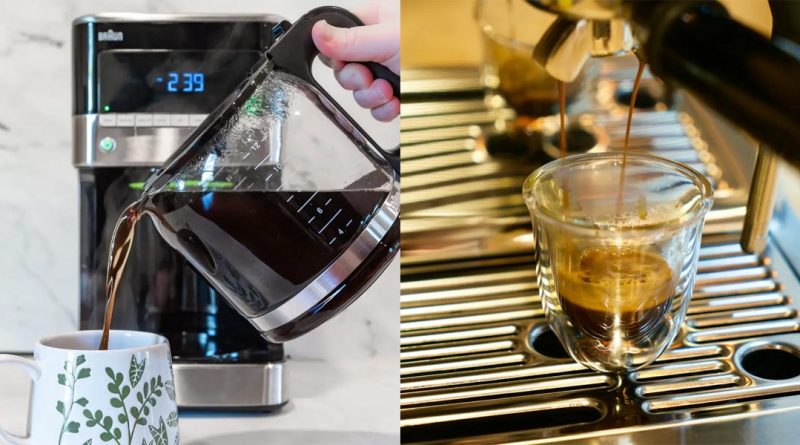The Best Coffee Makers of 2024, Tested and Reviewed
FAQs
Dylan Ettinger/Business Insider
What’s the best drip coffee at home?
Any coffee can work in a coffee maker, but make sure your coffee is fresh. Most roasters print the roast date on every bag of coffee. Try to find a coffee roasted less than two weeks before you want to brew.
Second, if you can, use the best coffee grinder to grind your coffee just before brewing. “Optimally, freshly roasted and freshly ground coffee goes into the coffee maker. Yes, grinding is an extra step and yes, it is completely worth it,” Gaultieri says.
Do fresh grounds in coffee makers really make a difference?
“Always!” Gaultieri says. After roasting, all of the flavorful oils and sugars start to decay and the gasses inside the coffee beans leak out, creating a more dull and stale flavor. Pre-grinding your coffee long before brewing amplifies that effect.
“The coffee starts to lose volatile aromatic compounds as soon as it is ground,” says Gaultieri. By breaking up the beans and releasing more of the gasses and exposing the organic compounds and oils to the air, it spoils even more quickly.
Why should I buy an electric coffee maker?
Electric coffee makers excel when it comes to consistency. “A coffee machine is programmed to do the same thing every time it is turned on, and if it is a good machine, it will do this very consistently,” says Rodriguez. Electric coffee makers also often have features such as timed brewing, which can save time in the morning if your schedule is tight.
What kind of coffee filters should I use?
The most common are reusable metal or mesh filters and single-use paper filters. Some makers even allow the user to choose between the two.
The major difference between filtration types is how much of the dissolved coffee solids and oils they allow to pass through. “Filtration affects the beverage clarity which affects the body/mouthfeel sensory experience of coffee,” Rodriguez says. Reusable filters have the added bonus of producing less waste and cutting long-term costs.
What sets an SCA-certified home brewer apart from other coffee makers?
The Specialty Coffee Association (SCA) has a program that rigorously tests coffee makers and certifies the ones that perform to their standards. Any SCA-certified brewer is proven to produce high-quality, consistent cups of coffee.
As Jessica Rodriguez, Certifications Program Manager at the SCA explains, “Multiple production units are submitted and tested at 1L and full capacity for adequate brew basket space to hold the SCA Golden Cup ratio of 55g/L, that they can reach and maintain a brewing temperature of 92 – 96C, the total water contact time falls between 4 – 8 minutes, the total dissolved solids of each brew falls between 1.15% – 1.45% and is consistent from extraction to extraction, and that there is good beverage clarity. Submitted brewers are also subjected to a uniformity-of-extraction test procedure that analyzes the spent coffee bed for the evenness of extraction.”
